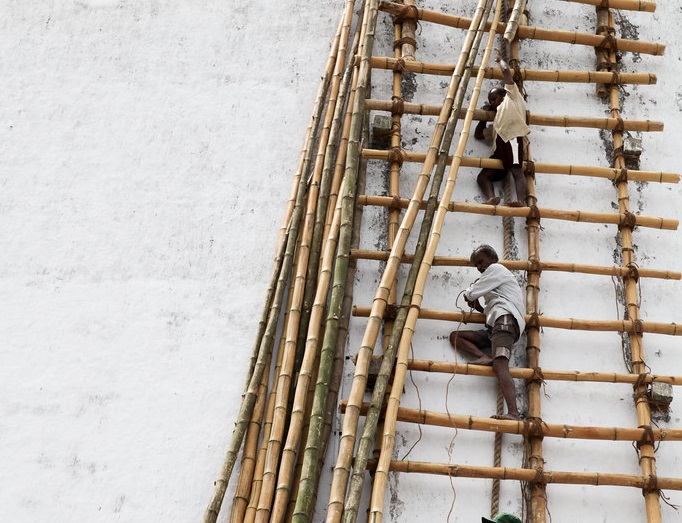One million Sri Lankan construction workers have lost their jobs
The intertwining of local economic crisis and global rise in raw material costs has led to paralysis in the industry. Trade bodies worried about competition from Bangladesh, Nepal, India and Malaysia, where foreign investors find lower costs per square meter to build. The government has agreed to raise capped prices for contracts on new roads by 20 percent, but has 200 billion rupees in back payments.
Colombo (AsiaNews) - Due to the current economic crisis, more than one million construction workers in Sri Lanka have lost their jobs and thousands have left the country in search of employment, mainly in Japan, Malaysia, the Middle East and South Korea.
This was revealed during the meeting of the Committee on Measures to Mitigate the Impact of the Economic Crisis held in the Colombo Parliament last week. The committee met with representatives of associations representing small, medium and large construction companies and discussed possible plans of action for the sector, whose workforce is 90 percent semi-skilled workers.
Since 2021, many construction companies have gone out of business and a large number of professionals have left the country, particularly civil, electrical and skilled mechanical engineers.
Meanwhile, prices of raw materials needed for construction have risen, including cement, iron, aluminum, PVC pipes, cables, roofing materials, and steel, including floor and wall tiles. But a major problem is also the lack of institutions that provide training opportunities for apprentices in the industry.
Neville Dissanayaka, an experienced civil engineer and managing director of a large residential complex in Colombo, explains to AsiaNews that "steel prices have reached Rs. 340,000 per ton, while the price of a cube of sand has increased by Rs. 5,000. Material suppliers are quoting at will, with prices rising by the day. Out of the approximately 1.5 million people employed in the construction industry currently 75%-80% are unemployed."
"Import restrictions on construction materials such as tiles, air conditioning systems and elevator systems have further hurt the construction industry. In addition, the government has to pay about 200 billion rupees in arrears for several projects undertaken in the 2020-2021 period," Neville adds.
According to civil engineer Mayantha Igalawithana, "The cost of building a square meter in Sri Lanka is increasing exponentially, compared to other countries in Asia. As a result, foreign investors will tend to invest in countries such as Bangladesh, Nepal, India and Malaysia instead of Sri Lanka. Sri Lanka's construction industry contributed about 9 percent to the country's GDP, so its collapse has a serious impact outside the industry as well."
According to the National Construction Association of Sri Lanka (NCASL), 95 percent of construction projects have been delayed due to shortages and high commodity prices. The Ceylon Institute of Builders (CIOB) pointed out that "the construction industry is unable to sustain itself because of these urgent problems."
As a first response, the Colombo government agreed to pay contractors 20 percent over the pre-set prices for construction projects promoted by the Road Development Authority and the Maga Neguma Company because of rising costs.
Photo: Flickr /Josep Castell
14/07/2018 15:35
08/01/2008
24/01/2007







.png)










